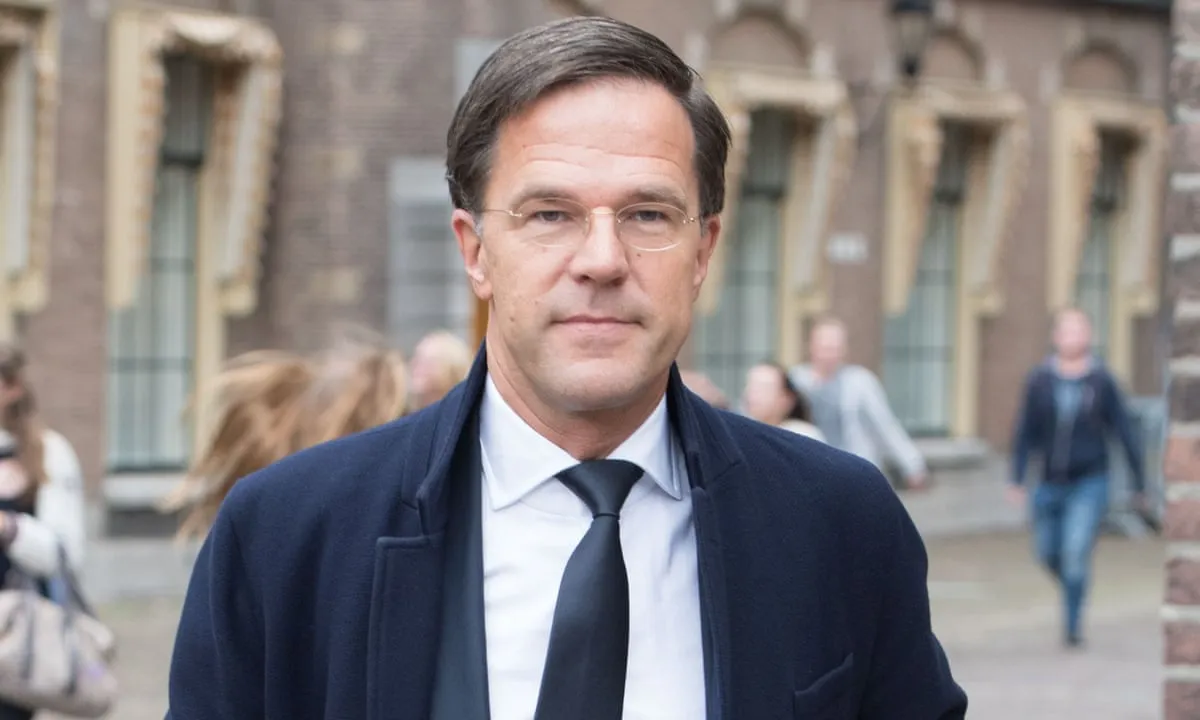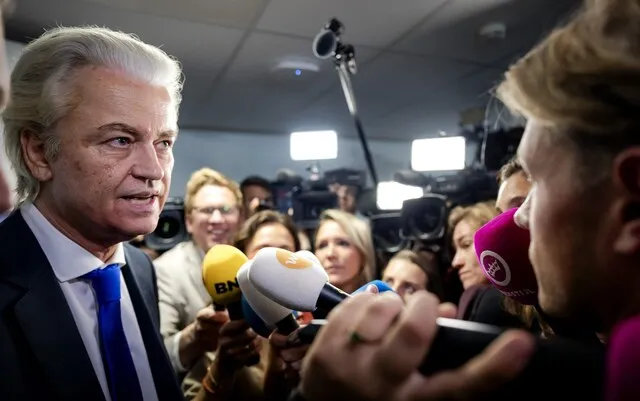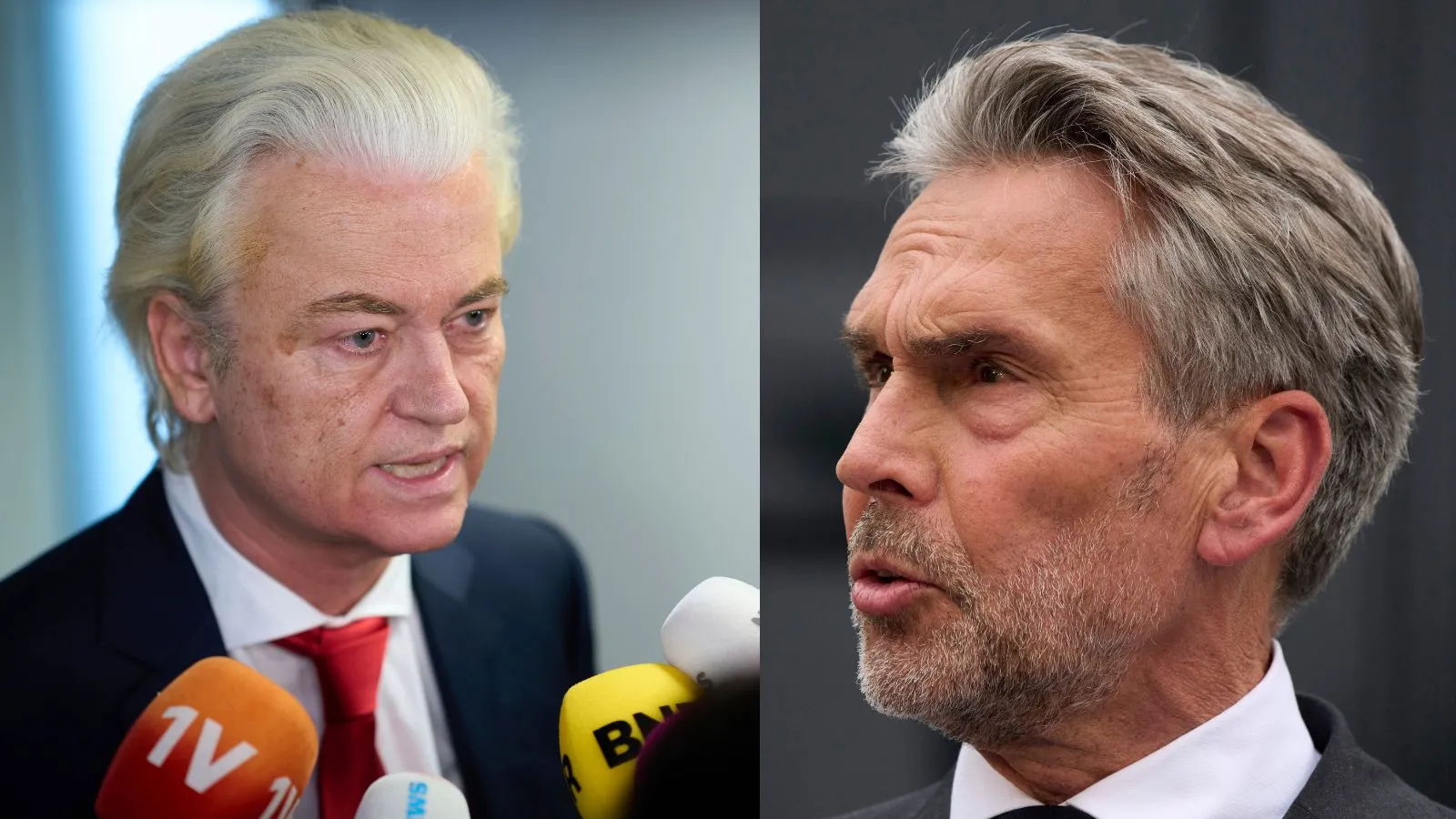Introduction
In a noteworthy political change, the Dutch government has collapsed taking after the withdrawal of the far-right Party for Opportunity (PVV) from the administering fusion. This advancement, established in deep-seated contradictions over migration approach, has dove the Netherlands into political instability and set the arrange for Dutch Government Collapses.
Background: The Delicate Coalition

- The consolidation government, shaped in July 2024, comprised four parties:
- Party for Opportunity (PVV) – 37 seats
- People’s Party for Opportunity and Majority rule government (VVD) – 24 seats
- New Social Contract (NSC) – 20 seats
- Farmer-Citizen Development (BBB) – 7 seats
This collusion held a larger part with 88 seats in the 150-seat House of Agents. The amalgamation was driven by Prime Serve Dick Schoof, a technocrat designated by PVV pioneer Geert Wilders. Be that as it may, ideological contrasts, especially on migration, made the amalgamation inalienably unstable.
Read Also: Laughing Through Politics: A Deep Dive Into Donald Trump Political Cartoons
The Migration Approach Dispute
Geert Wilders, known for his hardline position on migration, proposed a rigid 10-point arrange pointed at definitely lessening refuge applications. Key recommendations included:
- Deploying the military to secure borders
- Halting family reunifications for refuge seekers
- Repatriating Syrian refugees
- Revoking double citizenship
These proposition confronted solid resistance from fusion accomplices, who considered them contradictory with Dutch law and European Union directions. The failure to reach a agreement on these measures driven to raising pressures inside the coalition.
The Collapse of the Government
On June 3, 2025, Wilders declared the PVV's withdrawal from the fusion, citing the disappointment to actualize his migration proposition. This move stripped the government of its lion's share, diminishing its seats from 88 to 51. Subsequently, Prime Serve Schoof surrendered, clearing out the Netherlands beneath a caretaker government.
Coalition accomplices criticized Wilders for prioritizing party interface over national steadiness. VVD pioneer Dilan Yesilgöz-Zegerius denounced him of "putting his claim interface over the interface of our nation." The collapse comes at a basic time, with the Netherlands set to have a NATO summit in three weeks.
Historical Setting: A Repeating Issue

This is not the to begin with time migration approach has driven to the ruin of a Dutch government. In July 2023, the fourth cabinet of Prime Serve Stamp Rutte collapsed due to differences over refuge arrangements, especially the reunification of displaced person families. Rutte's renunciation stamped the conclusion of his 13-year residency, making way for the consequent amalgamation that has presently moreover fallen.
Geert Wilders: A Polarizing Figure
Geert Wilders, regularly named the "Dutch Trump," has been a disputable figure in Dutch legislative issues. His PVV party secured a shocking triumph in the 2023 races but confronted challenges in shaping a steady government due to his polarizing sees. Wilders has a history of incendiary talk against Islam and workers, and his later activities have been seen as a key move to position movement as a central issue in up and Dutch Government Collapses.
You May Also Like: Biden slams Trump for conviction as prospects fade of more pre-election trials
Implications for the Netherlands and the EU
- The government's collapse has noteworthy implications:
- Political Flimsiness: The Netherlands faces a period of political instability, with a caretaker government in put until unused decisions are held, likely in the autumn.
- Policy Loss of motion: Key administrative activities may slow down, influencing residential and EU-related policies.
- EU Relations: The Netherlands' position inside the EU seem be affected, particularly concerning collective migration and refuge policies.
Looking Ahead: The Street to Elections

With the government broken up, the Netherlands is planning for early races. Surveys propose a competitive race, with centrist parties like the VVD and a Labour/Green collusion possibly picking up ground. Wilders' PVV may confront challenges due to later reactions and declining ubiquity. The race result will be essential in deciding the country's approach to movement and its part inside the EU.
Conclusion
The collapse of the Dutch government underscores the profound divisions over movement arrangement and the challenges of consolidation administration. As the nation heads toward modern decisions, the heading of Dutch legislative issues remains dubious, with critical suggestions for both national and European issues.

